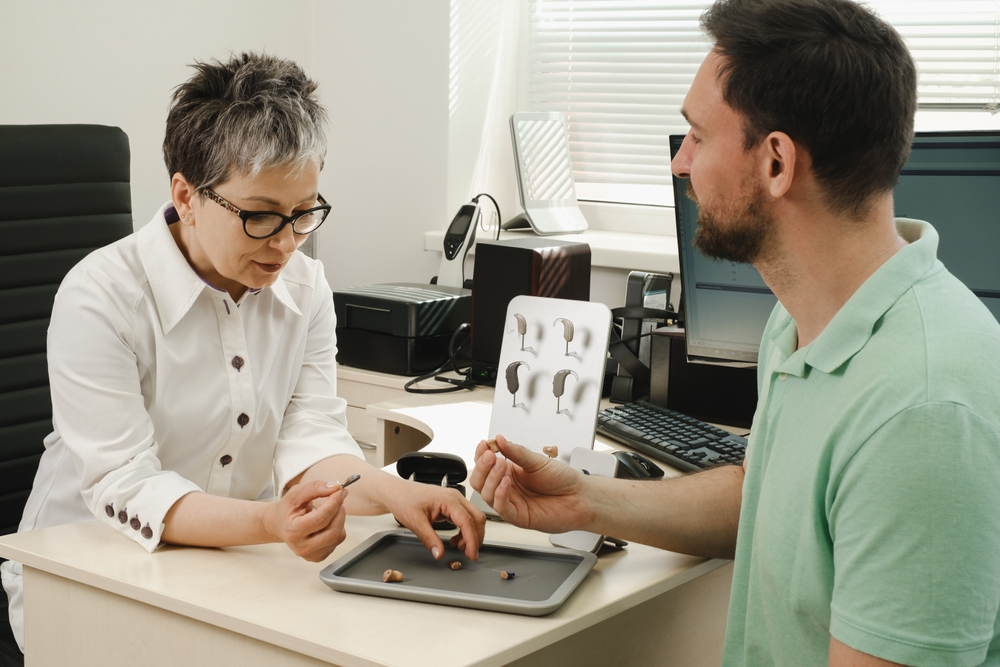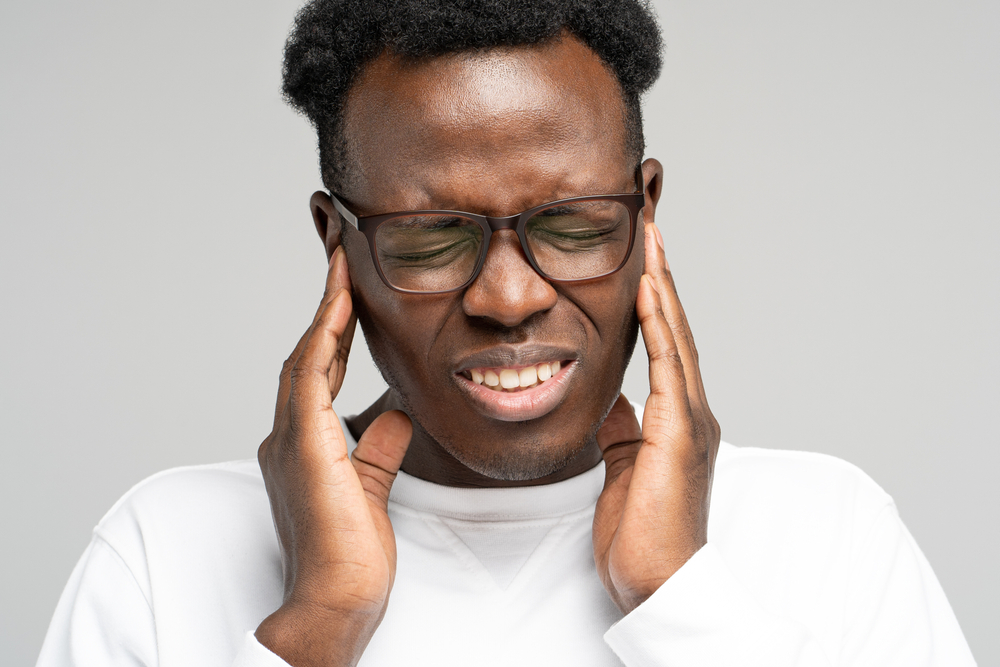As you probably know, prolonged periods of stress are not good for the body. Stress can produce severe muscle aches and headaches. But did you know stress can also lead to tinnitus – a ringing, buzzing, or clicking in the ears? Stress is not something you should ignore when you have to ask what is that annoying ringing in my ears?
Tinnitus can be caused by many different health factors, including stress, sinus infections, or loud noises. Let’s examine a few potential causes of that annoying ringing in your ears.
How to recognize unhealthy stress
You might be wondering how stress contributes to tinnitus. We often don’t consider the negative impact stress can have on our bodies or how it can lead to frustrating, painful, or even serious medical conditions.
Healthy stress
Stress that lasts a few minutes, or even a few hours, can actually play an important role in getting the necessary tasks completed. If you’re facing a deadline and need to focus on completing a project, stress can be an ally by providing the boost of energy necessary to get the job done.
There is a difference, however, between healthy, temporary stress and unhealthy, damaging stress. Healthy stress helps you accomplish a goal without harming your body. Unhealthy stress is another story altogether.
Unhealthy stress
Unhealthy stress is caused by the fear of something that, more often than not, never actually occurs. Unhealthy stress is produced when a person remains in a heightened state of anxiety for a long period of time.
Unhealthy stress relates to our “fight or flight” response – a natural reaction that helps keep us safe in dangerous situations. When someone stays in a hyper-stressful state for a long period of time, it can lead to harmful physical symptoms.
Worrying
Unhealthy stress is often the result of worrying. We may exaggerate the importance of a situation or an interaction with another person. We may tell ourselves we destroyed a chance at promotion because of something we said. Excessive worrying can lead to intrusive, seemingly unmanageable thoughts.
Unhealthy stress and intrusive thoughts
We may worry about what we didn’t get completed today and fret over what we need to get done tomorrow. We may obsess, lecture ourselves, or even panic. Ultimately, our unhealthy stress wears on our bodies unless we take steps to curtail these thoughts.
Typically, unhealthy stress affects the upper part of the body by causing muscle tension and pain. Affected areas may include the head, neck, jaw, or shoulders.
Anger and jaw tension
Have you ever read a book where the author describes a character as being so angry his jaw clenched in rage? Jaw tension is a common symptom of stress, anger, worry, and intrusive thoughts.
Sustained tension can put pressure on the fragile bones of the inner ear and eardrum. Over time, this strain can lead to ringing in your ears.
Sinus infections and ear strain
From sore throats to stuffy noses, sinus infections bring lots of unwelcome symptoms.
Sinus infections cause sinus pressure, headaches, and ear pressure. These issues can lead to buzzing, clicking, or ringing in the ears.
Nasal congestion often spreads to the ears during a sinus infection. This can create excess ear wax, which causes blockages in the ears and intense pressure on the eardrums. Pressure on the tiny bones of the inner ear can lead to tinnitus symptoms.
You may not need to visit a hearing professional if the ringing is the result of a sinus infection, as the symptoms may clear up naturally. If the ringing persists for more than a few days, however, you should make an appointment with your hearing professional.
Prolonged exposure to loud noises
The occasional music concert is probably not going to cause long-term ear-ringing. If you routinely expose your ears to intense sounds, however, you may be introducing stress to the tender parts of your ears.
When you expose your ears to loud noises on a regular basis, your eardrums and the bones of the inner ears are put under a great deal of strain, which can lead to ringing, buzzing, or clicking.
Beyond the occasional ringing in your ears, exposure to loud sounds over a long period of time can result in temporary or permanent hearing loss. It’s important to protect your ears from the elements and listen to music at a reasonable volume level.
Protecting your hearing
Whether caused by stress, muscle tension, an illness, or loud noises, tinnitus is nothing to ignore. If you suspect the ringing in your ears has a serious underlying medical cause, you should get them checked for your peace of mind.



